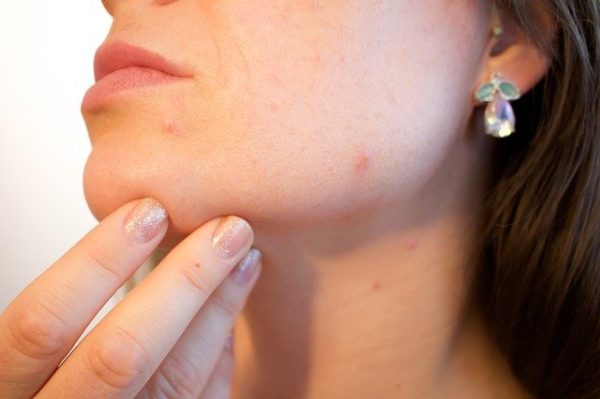 Acne is the stuff of nightmares for teenagers, and for many adults the nightmare continues well past their teenage years. Commercial acne products combat the problem, but by stripping your skin of its naturally occurring oils. In many cases, this affects your skin’s natural inflammatory process and leaves it looking dry. There is an alternative; you can consider using natural acne products. Spotting the difference between natural products and those that are created using a litany of synthetic chemicals can have a positive impact on your skin.
Acne is the stuff of nightmares for teenagers, and for many adults the nightmare continues well past their teenage years. Commercial acne products combat the problem, but by stripping your skin of its naturally occurring oils. In many cases, this affects your skin’s natural inflammatory process and leaves it looking dry. There is an alternative; you can consider using natural acne products. Spotting the difference between natural products and those that are created using a litany of synthetic chemicals can have a positive impact on your skin.
Natural Acne Products Containing Tea Tree Oil
In the world of natural acne treatment, tea tree oil is the most popular ingredient. It has been used for thousands of years to combat bacteria and reduce inflammation. This is what makes it ideal for acne. Acne occurs when your pores become blocked due to excess sebum production. It is especially likely to happen in your teenage years, as the high volume of androgens you produce during puberty increase the amount of sebum you produce. When your pores become blocked, your body’s inflammatory mediators get to work. As a result, you experience those unsightly pimples you’re so desperate to get rid of.
Applying tea tree oil directly to your skin won’t do much good, in fact, it can produce some pretty embarrassing results when undiluted. You can, however, use it alongside a carrier oil. Even better, you can use as acne steam treatment, which is as relaxing as it is therapeutic.
Using Honey to Combat Acne
Bees may be a bit of a pain when it comes to enjoying your summer, but they do produce one of the best ingredients you can use to combat acne. First, honey helps your skin moisturise through osmosis. The naturally occurring sugars in honey attract moisture to your skin, allowing it to stay hydrated. It is this same osmotic process that has led healthcare teams to use honey-based dressings in recent years. Honey encourages osmosis to the point that it makes cellular conditions too wet for bacteria to flourish in. As a result, you are less likely to experience pimples as a result of bacteria.
You might not want to use honey on a daily basis, but using it once or twice a week is fantastic. Using a honey facemask can help you soften the skin, nourish it, and keep bacteria at bay. Making honey a part of your weekly skin routine is a great way to boost the effects of using tea tree oil on a daily basis.
Indulging in a Little Rosehip Therapy
Rosehip is your best friend if you suffer from greasy skin. While some individuals may overcome acne when they reach their adult years, others will continue to experience outbursts. Although rosehip is a vegetable oil, it is naturally non-greasy. This means you can use a rosehip based cream to keep your skin moisturised, without experiencing the negative effects that oily skinned individuals witness when using oily products.
As well as being non-greasy, a typical rosehip moisturiser contains fatty acids Omega 3 and Omega 6, which are anti-inflammatory. Again, as pimples come with inflammation, this can make existing acne look less angry. Even better, it is a great way to combat scarring. As any person who has suffered with long-term acne will know, the scarring is as heart-breaking as the spots. Rosehip oil stimulates the production of new cells in an organised manner, whereas natural scarring stimulates new cells in a disorganised manner. This means your scars are less prominent, and your skin is more beautiful.
You can achieve all of these benefits without seeing the negative effects that chemicals bring. Oil-stripping chemicals in non-organic beauty products dry your skin out. When you go down the organic route, you can say goodbye to acne and retain your skin’s natural sheen.